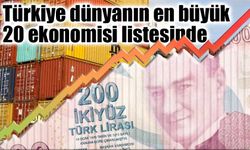In the FOMC, where no new decision has been taken, we see that some expressions related to economic recovery in the policy text have been changed. Apart from that, we can say that it is an unexcited FOMC. At this point, the most curious subject is "tapering", and Powell at this point actually stated that we are not in a stage to speak "tapering" in his speech two weeks ago. However, there is a segment within the FOMC who thinks that the interest rates should be increased earlier. Any signs of improvement will strengthen the hand of this team over time.
As one of the striking sentences in the text; "The pace of economic activity and employment recovery has slowed in recent months, and weakness has concentrated in the sectors most adversely affected by the pandemic." stands out. The rate of spread of the virus hits the service side the most (accommodation, catering, restaurant, aviation). The situation of the problem sectors will depend heavily on fiscal expansion. We will see how much of the Biden package has been clipped, helping companies is an item that should not be trimmed. Other modified parts are; “The course of the economy will depend significantly on the course of the virus, including the progress of vaccines. The ongoing public health crisis continues to put pressure on economic activity, employment and inflation, and poses significant risks to the economic outlook. ” looks as. Vaccination is now the main play maker at the recovery point of the economy. Vaccination, unfortunately, will not occur in a homogeneous way around the world, and while large countries vaccinate their own populations, less developed countries will not yet have access to the vaccine. One of the most important consequences of this crisis period; that developed countries that can financially support their economy and have access to vaccines will come out of the crisis by widening the gap.
Highlights from Powell's side; "The monetary stance will be expansionary until the epidemic is over, there is a long way to go in terms of employment and inflation, and the crisis does not affect everyone in the same way." It is important to address the asymmetrical impact of the crisis. One of the legacies of the crisis will be the deepening of economic injustice. The most significant toxic effect would be that excessive monetary support would further relieve "those who have more access to credit" without proper financial support and not touch those who actually need support. For this reason, it is imperative to support the middle and lower income groups deeply affected by the crisis and to ensure the survival of local businesses. This will be the main function of the financial package, and a delayed or inadequate package will not be able to offer enough of the recovery.












